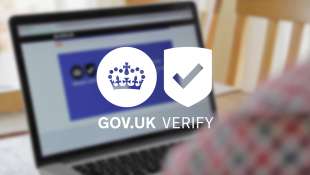This blog post is for anyone interested in the technical development of GOV.UK Verify.
In our first technical delivery update we explained that there are 3 parts to GOV.UK Verify and the delivery team is responsible for building and maintaining 2 of them: the GOV.UK Verify hub and Document Checking Service.
The delivery team is made up of developers, engineers, analysts, product managers, delivery managers, designers, researchers, content designers and architects. Currently, we’re working on 3 technical delivery priorities: increasing adoption of GOV.UK Verify; improving and maintaining GOV.UK Verify; and meeting the Digital by Default Service Standard for a live service.
It’s been a few weeks since our last update - sorry about that, the team has been hard at work in preparation for the move from beta to live - but here’s what we’ve been working on since and what we plan to do next.
Increasing adoption of GOV.UK Verify
We want departments across government to increasingly adopt GOV.UK Verify because it’s secure, straightforward and meets the needs of their users. To improve GOV.UK Verify and make it better for end users, since our last update we’ve:
- connected the new certified companies to the hub. Now users have a wide selection of certified companies to choose from, all working under new contracts
- added new journeys to the hub to reflect the new features released by the certified companies - for example, we can now recommend certified companies for users without a UK passport or driving licence, and for those users who have non-UK identity documents
Improving and maintaining GOV.UK Verify
We want to continue to improve the way we run the GOV.UK Verify federation and ensure we’re ready to run a live service. To continue to keep GOV.UK Verify available and secure we’ve:
- scaled the hub service to handle additional data storage volume
- progressed the ‘must have’ work for transitioning from a beta to a live service
Over the last 2 weeks we’ve:
- released an initial rollout of our new frontend, which is being built in the open, in the form of pages available in Welsh (adborth/feedback welcome)
- improved the workflow for our rapid technical support response team
- procured additional service hosting for our mission-critical services to help the service stay up in the event of failure
- develop our tooling to enhance our ability to detect and prevent malicious activity within the hub
Things we plan to do next
In the coming 2 to 3 weeks we expect to continue to:
- roll out the new frontend updates, with Welsh language support
- add additional resilience to our existing disaster recovery systems
- gather new Management Information (MI) data to help analyse the performance of the service and Identity Providers
- maintain and improve the service
Subscribe to the blog to keep up to date with GOV.UK Verify's latest technical developments.
